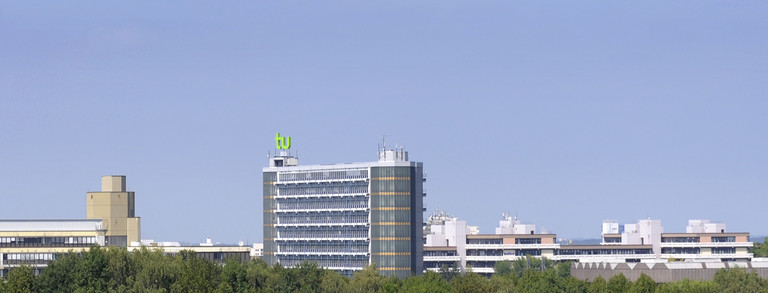Artificial Intelligence for Combine Harvesters and Tractors
- Artificial Intelligence
- Top News
- Research
- Press Releases

Artificial intelligence methods and technologies can significantly improve numerous processes – success stories from logistics, medicine, and gaming are testimony to this. Within the resKIL project (Resource-efficient AI for Embedded Systems in Agricultural Machinery), which is being funded by the Federal Ministry of Food and Agriculture with around € 1.57 million, a consortium from agricultural engineering, software development, and research is now transferring this basic technology to agricultural machinery. Professor Markus Pauly from the Department of Statistics at TU Dortmund University is also involved in the project. On 22 April, the Federal Ministry of Food and Agriculture issued the official grant approval.
Artificial intelligence can help farmers to plan and manage their work better so that they are relieved of routine tasks. In future, for example, large machines, such as tractors, could drive autonomously across the fields or combine harvesters equipped with cameras automatically detect the quality of the harvest and use the data to change the settings in the harvesting process. These are two examples on which Professor Markus Pauly from TU Dortmund University is working, together with the other project partners: CLAAS E-Systems GmbH, Zauberzeug GmbH, the German Research Center for Artificial Intelligence, and the University of Osnabrück. The project began on 1 January 2021 and will run for three years.
New machine learning methods
The various sensors with which the machines are equipped generate large amounts of data on a continuous basis. This is where the expertise of Professor Pauly, his colleague Lena Schmid and his team is in demand, as they are in charge of planning the experiments and the sample size. “As a statistician, I know a lot about data and how to collect them,” says Pauly, professor for mathematical statistics and industrial applications. Together with the project partners, he is developing the machine learning methods for the research project and making sure that the data used are of the required quality.

Agricultural applications are namely influenced by numerous factors: “The machine must recognize the field and adhere to certain specifications when working it, for example path tracking or turning maneuvers. However, the data recorded change, for example, depending on the season, harvest status, substrate or what is planted,” explains Professor Pauly. “Artificial intelligence must therefore be able to record and process these data correctly.” Around € 200,000 of the project funding have been allocated to TU Dortmund University.




![[Translate to English:] Partner Four hands are holding the green logo of TU Dortmund University](/storages/tu_website/_processed_/1/d/csm_Partner_Nicole_Rechmann_KW_40b35bb3fd.jpg)




![[Translate to English:] Forschung An apparatus with tubes in a laboratory](/storages/tu_website/_processed_/0/c/csm_Forschung_Juergen_Huhn_cbd34afd6d.jpg)
![[Translate to English:] Studium Five students are sitting in a lecture hall. They are talking to each other.](/storages/tu_website/_processed_/c/9/csm_Studium_FelixSchmale_81d94adc86.jpg)





